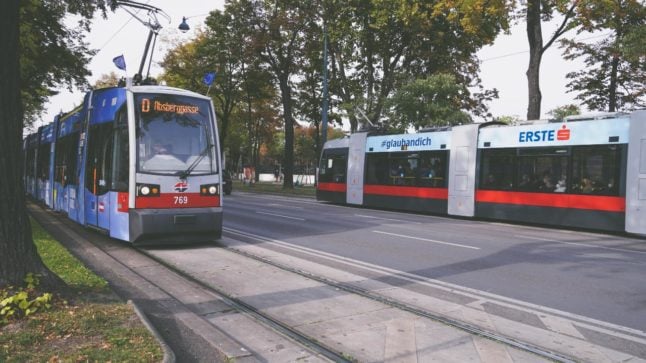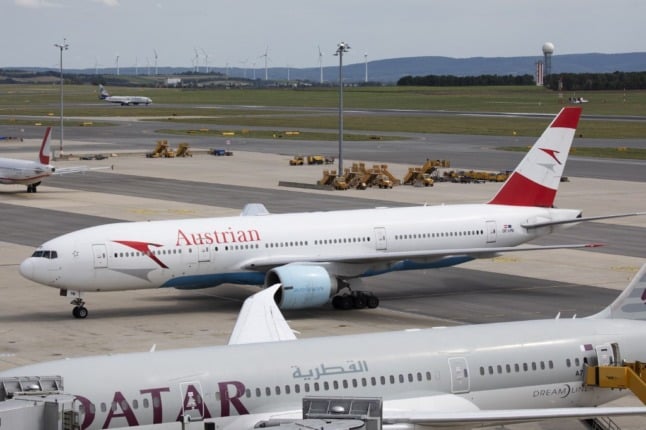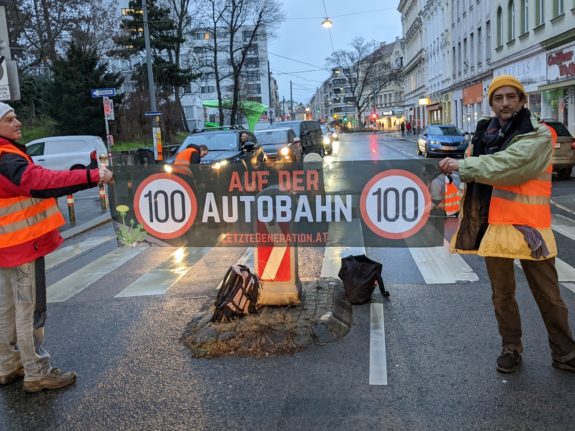August is a quiet month in Austria, and it sometimes seems as if half the country spends it enjoying long lazy days at the lake, hiking the Alps or simply escaping somewhere warm and sunny.
Nevertheless, there are a few key changes coming up that you may want to know about – even if you’re planning on taking a few well-deserved weeks off yourself.
Patchy public transport in Vienna
Summer is the time for construction work of all kinds – and that includes the general maintenance of Austria’s public transport network. In Vienna, there are set to be a fair few rail-replacement buses on the go in August, so make sure you check your route ahead of time.
In particular, there are only partial services running on the U1, U2 and U6, as well as the S45. Between August 7th and September 3rd, the U1 will be split into two parts: a normal service will be running every four minutes between Leopoldau and Reumannplatz, while a shuttle service will take passengers onwards to Oberlaa every 12 minutes.

Meanwhile, the a rail replacement bus will be running between Alterlaa and Am Schöpfwerk on the U6 until August 27th, while the U2 will only run between Seestadt and Schottentor until autumn 2024. From July 27th to September 4th, the S45 will no longer be running between Hernals and Heiligenstadt.
For more details on the disruptions – including changes to tram and bus timetables – check out the Austrian Car, Motorcycle and Touring Club (ÖAMTC) website.
Mariä Himmelfahrt public holiday
On August 15th, Maria Himmelfahrt – a Catholic celebration marking the day Mary ascended to heaven – takes place in Austria.
Since this year the Christian festival occurs on a Tuesday, savvy workers may want to take what’s known as a ‘Brückentag’ in order to nab themselves a three-day week.
This simply involves booking the Monday off and getting a four-day weekend from the Saturday to the Tuesday without using too many of your precious days of paid leave.
READ ALSO: Brückentag, Fenstertag or Zwickeltag? All the German words for getting longer holiday weekends
New protections for whistle-blowers
Way back in 2019, the EU passed a new law designed to unify protections for whistle-blowers across all member states. Austria initially missed the deadline for passing the legislation on a national level but the Whistleblower Act eventually entered into law on February 25th, 2023. Now, a key deadline in the implementation phase is coming up.
By August 25th, companies in Austria with 250 employees or more will have to offer an internal reporting channel through which whistle-blowers can report any legal violations such as corruption. Smaller companies with more than 50 employees will also need to take this step, but will have until December 17th to do so.
Yearly car vignettes no longer worth it
With just four months left until the annual vignette for 2024 comes out, it no longer makes financial sense to purchase an annual sticker for 2023 after August 1st.
Instead, the German motorist association ADAC recommends that car owners purchase short-term tickets to take them through to December 1st, when the new vignette will be valid.

“From August, frequent drivers can bridge the time until the end of November with two two-month vignettes,” ADAC explains. With an annual vignette costing €96.40 and a two-month ticket costing €29, drivers can save €38.40 by using this tactic.
For anyone wondering, the vignette is a small sticker that shows that you’ve paid the tolls necessary to travel on Austrian expressways and motorways. Ten-day options are also available for €9.90.
READ ALSO: 7 things to know about driving in Austria this summer
Expect ‘out of office’ replies
If Americans have the impression that Europeans are on holiday for the entire month of August, Austrians certainly don’t do much to change that view.
Whether it’s your doctor, your colleagues or the owner of your local corner shop, you can expect to see plenty of ‘out of office’ replies this month – especially for anyone who hasn’t taken time off in July.
Even politics comes to a standstill over summer as parliament closes its door from July 15th to September 15th each year.
Our advice is to try not to stress too much about getting this done this month and maybe enjoy some quality time off yourself. Then, once September rolls around, you can start booking all those important appointments and ticking things off your to-do list once more.
Flight prices likely to peak
As we’ve been reporting, flight prices have been soaring in Europe lately, making budget trips to and from Austria a thing of the past (unless you go by train and book well in advance).
Back in April, the cost of an airline ticket was a whopping 20 percent more expensive than the year before – and things have only got worse during the peak season.

This is due to a multitude of factors – from recouping losses after the pandemic to high inflation and soaring fuel prices – and also due to the fact that the summer holidays tend to be the most popular time to travel.
The good news is that the peak season is set to draw to a close in late August, so you can expect to see prices drop a little later in the month. Alternatively, check out our recommendations for great beaches you can reach from Austria without the hassle (or expense) of flying.
READ ALSO:
- The seaside destinations you can reach without a car or plane from Austria
- Why are flights to and from Austria so expensive this summer?
Tax deadlines for the self-employed
Firstly, don’t panic, since this doesn’t apply to everyone, but if you’re a business owner you may want to keep an eye on your tax affairs this August.
The primary date to look out for is August 15th, when the advance VAT return for June 2023 or the second quarter of 2023 will be due (assuming this applies to you). It’s also worth noting that advance corporation tax payments and advance income tax payments for the third quarter of 2023 will be due on this date.
If you’re keen to keep on track of other key tax dates this year, tax software provider ProSaldo has a useful list on their website.
Pupils prepare to return to school
In Austria, schools break up for the summer between July 1st or 8th and September 3rd or 10th, depending on the region, so August marks the last month of the long holidays.
It’s the perfect time to make the most of the sunshine and plan day trips to the mountains, long bike rides in the countryside or a relaxing afternoon at one of Austria’s breathtaking crystalline lakes.

Then, for pupils across the country, the final weeks of the month are the time to stock up on stationary and get into the mindset for the new school year.
READ ALSO: How to enjoy summer like a true Austrian
Lower Austria administration adopts gender-sensitive language
The regional government in Lower Austria will be adopting gender-neutral language in its official communications from August 1st. The move is to comply with recommendations from Council for German Orthography on how to use the German language in a gender-sensitive manner – but it won’t involve using controversial techniques such as asterisks, dots, colons or indented I’s in order to show inclusivity (i.e. Koch*innen).
The decree covers official documents and notices but won’t be applied to “every email”, the administration made clear. It is designed to ensure that documents are not only inclusive – i.e. making clear that certain professions are practiced by both men and women – but also more readable and comprehensive. Repeated non-compliance could potentially result in a fine.
If you’re confused about what this is all about, check out this recent explainer from our sister site, The Local Germany:
Gendern: Why Germany still gets fired up about gender-neutral language
Changeable weather set to continue
Another heatwave is likely to hit Austria at the start of August, with Vienna seeing several days of 36C and 37C heat back-to-back.
However, early reports suggest that the weather throughout the month could continue to be changeable, with warm sunny spells interspersed with rain showers and summer storms.



 Please whitelist us to continue reading.
Please whitelist us to continue reading.
Member comments